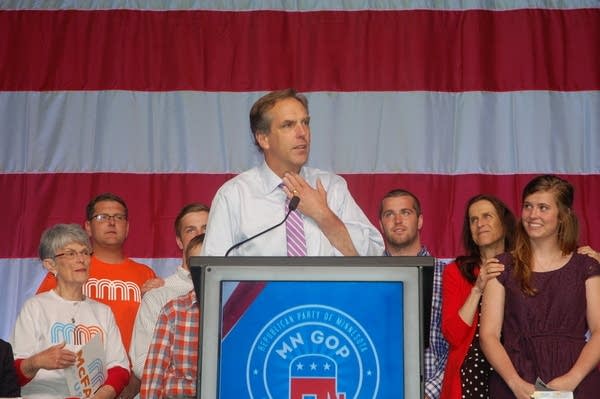Who is McFadden? Partisans rush to define GOP Senate hopeful

Businessman Mike McFadden won the GOP endorsement for U.S. Senate May 31, 2014.
Tom Scheck/MPR News, file
Go Deeper.
Create an account or log in to save stories.
Like this?
Thanks for liking this story! We have added it to a list of your favorite stories.


